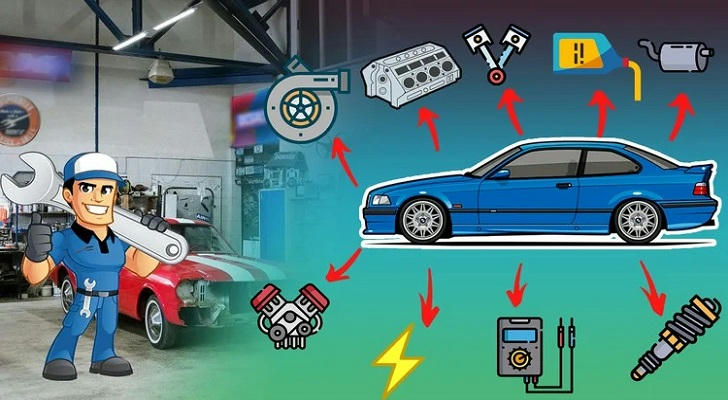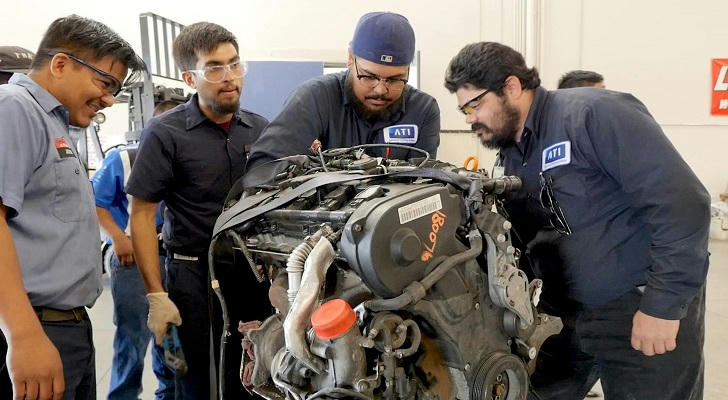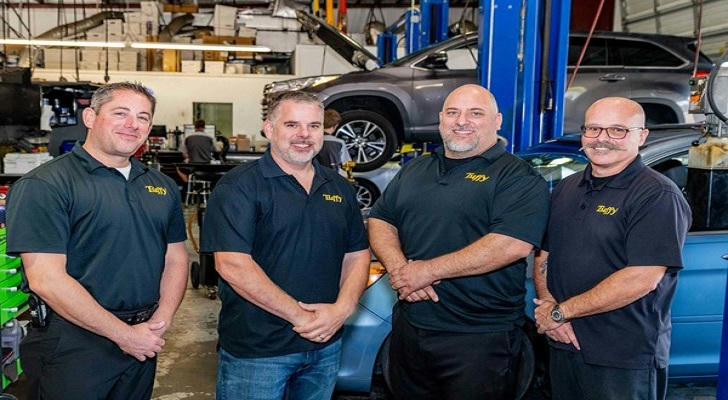Automotive Repair Training Program: A Road to a Rewarding Career
Automotive repair technicians are essential in maintaining vehicle safety and performance, and the demand for skilled professionals is growing. An automotive repair training program offers a stable, high-paying career with hands-on training in modern vehicle diagnostics, electrical systems, and hybrid technology. Government-backed programs, such as those offered by community colleges and technical institutes, provide flexible training options that combine classroom instruction with practical experience. Graduates are equipped to enter the workforce and pursue various roles in the automotive industry, from repair shops to specialized service centers.

Why Choose an Automotive Repair Training Program?
Pursuing a career as an automotive repair technician offers numerous benefits, including job security, excellent earning potential, and the opportunity to work with cutting-edge technology. Here are some reasons to consider enrolling in an automotive repair training program:
✅ High Demand – According to the U.S. Bureau of Labor Statistics, the employment of automotive service technicians and mechanics is expected to grow by 6% from 2021 to 2031, reflecting the ongoing need for skilled workers.
✅ Competitive Salary – Entry-level automotive repair technicians can earn approximately $40,000 per year, with experienced professionals making $60,000 or more annually. Specialized technicians, such as those working with electric vehicles (EVs) or advanced diagnostics, may earn even higher salaries.
✅ Short Training Period – Many automotive repair programs can be completed in 6 months to 2 years, depending on the depth of the course and whether students pursue a degree or certification.
✅ Hands-on Experience – Automotive training programs typically combine classroom instruction with practical, hands-on experience, allowing students to work with actual vehicles and modern equipment.
✅ Career Growth – With additional certifications and specializations, automotive technicians can advance to higher-paying positions, such as service managers, shop owners, or specialists in specific automotive systems like hybrid or electric vehicles.
The automotive repair field attracts a wide range of individuals, from high school graduates seeking immediate employment opportunities to older adults looking for a career change or a way to re-enter the workforce after a break. Programs are designed to accommodate various age groups and provide flexible learning options to fit diverse schedules.
Course Overview
An automotive repair training program typically includes a combination of theoretical learning and practical application. Students will acquire the skills and knowledge necessary to diagnose, repair, and maintain a wide range of vehicles, from everyday cars to specialized machinery. Here are some key topics covered in most programs:
🔧 Basic Automotive Systems – Understanding engine mechanics, transmission systems, suspension, brakes, and electrical systems.
⚙️ Diagnostics and Troubleshooting – Learning to use diagnostic tools and equipment to identify issues in vehicle systems, including electronic control systems.
🛠️ Automotive Electrical Systems – Repairing and maintaining wiring, sensors, and advanced electrical systems, including battery technology in electric vehicles.
🧰 Engine Repair and Maintenance – In-depth training in engine diagnostics, repair, and maintenance, from basic engine theory to complex internal engine components.
🚗 Brake Systems and Suspension – Understanding brake types, suspension systems, and how to diagnose and repair these critical vehicle components.
🔋 Hybrid and Electric Vehicle (EV) Repair – With the rise of EVs and hybrid vehicles, many programs include specialized training for repairing and maintaining these modern vehicles.
🔧 Customer Service Skills – Since automotive technicians often interact directly with customers, training in communication, customer service, and estimating costs is also important.

Certification and Licensing
To become a certified automotive technician, candidates typically need to complete a training program and pass various exams. Although certification is not always required to work as an automotive technician, it can enhance job prospects and earning potential. Some of the most recognized certifications include:
1️⃣ Enroll in a Training Program – Many schools, such as Universal Technical Institute (UTI) and Penn Foster, offer accredited automotive repair programs that provide the foundational knowledge and hands-on experience needed for the job.
2️⃣ Obtain Certification – The National Institute for Automotive Service Excellence (ASE) offers certification exams for technicians specializing in different vehicle systems, such as brakes, engine repair, and electrical systems. These certifications are highly regarded by employers.
3️⃣ Work Experience – Gaining real-world experience through internships or apprenticeships is essential. Many programs require students to complete on-the-job training as part of the curriculum.
4️⃣ Continual Education – Given the rapid advancement in automotive technology, technicians must continually update their skills through ongoing education and certification renewal.
Career Opportunities
Once certified, automotive technicians can pursue a wide variety of career paths across different sectors of the automotive industry, including:
Automotive Service Technician – Works at repair shops, dealerships, or independent garages, diagnosing and repairing vehicles.
Diesel Mechanic – Specializes in the repair and maintenance of diesel-powered vehicles, including trucks and heavy equipment.
Hybrid/EV Technician – Specializes in the maintenance and repair of electric vehicles or hybrid vehicles, working with specialized systems such as battery management and electric propulsion.
Service Manager – Oversees a team of technicians, handling customer service, scheduling, and the overall operation of an auto repair business.
Automotive Shop Owner – With years of experience, some technicians may choose to open their own repair shops, offering services to their community.

Success Stories
🔹 John, a Former Retail Worker – Struggling with limited career growth in retail, John enrolled in an automotive repair training program at UTI. After completing the program and working as an apprentice for a year, he now works as a senior automotive technician earning over $55,000 annually.
🔹 Emily, a Single Mother – Emily wanted to provide a better future for her family, so she pursued an online automotive repair course with Penn Foster. She worked part-time while studying and now works as a service technician at a local dealership, enjoying job stability and excellent benefits.
Conclusion
An automotive repair training program is an excellent opportunity for individuals looking to enter a high-demand field with ample job opportunities. With the right training and certification, aspiring technicians can enjoy a rewarding career in a growing industry, all while working with the latest automotive technology. Whether through Universal Technical Institute, Penn Foster, or Ashworth College, anyone can get started on the road to success in the automotive repair industry today.
🚗 Start your training today and drive toward a bright future as a certified automotive technician! 🚗
